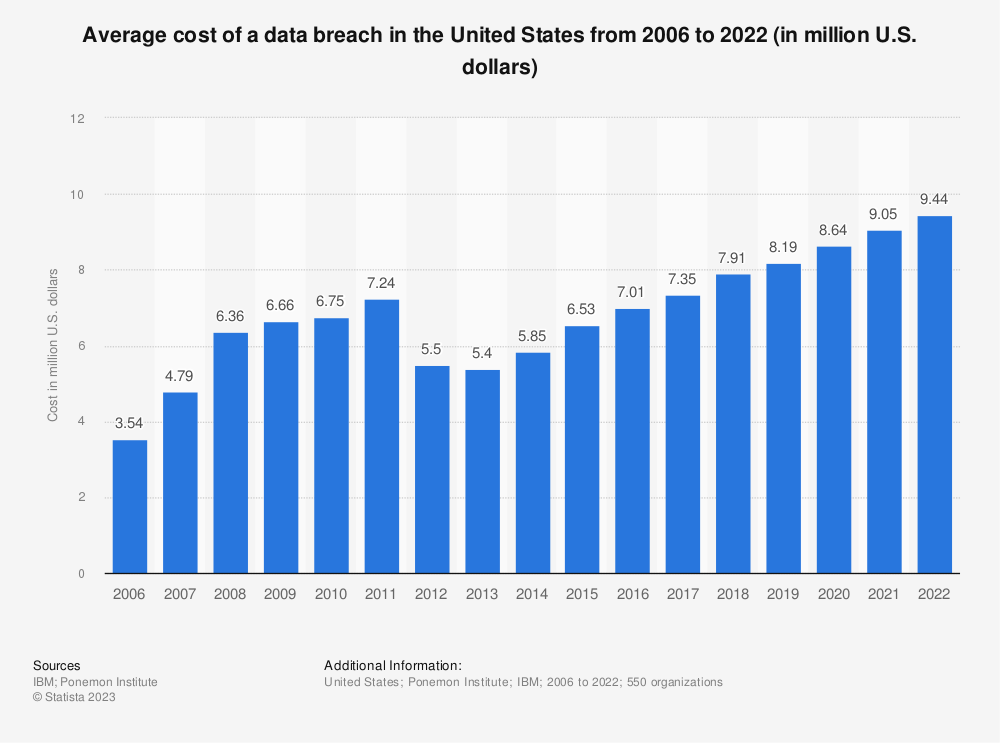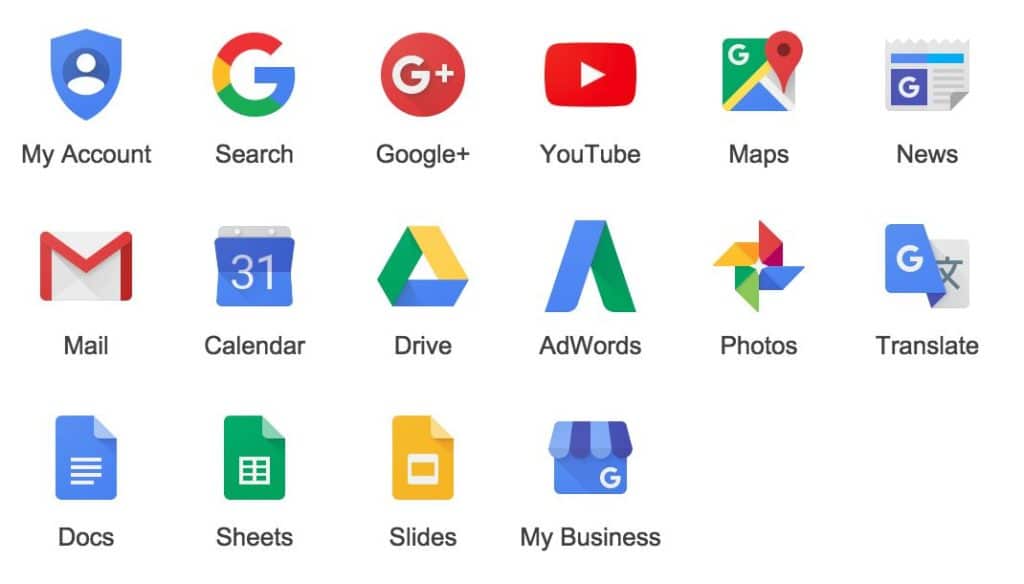Business Safety Online In 2023
Did you know that 74% of US organizations experienced a successful phishing attack in 2020? That’s up from 65% just one year prior. For perspective, only 56% of organizations in Japan experienced a successful phishing attack that same year.
In fact, data breaches in the US have increased almost tenfold over the last two decades. One of the worst data breaches to date? The 2018 security breach of Apollo (a sales intelligence company) which resulted in more than nine billion compromised data points. 😯
But losing data records is just part of the havoc that can come from cybersecurity crimes. Your business can also face legal and financial consequences due to a cyber attack. Just ask the credit agency Equifax. The company agreed to pay a $575 million settlement following a data breach in 2019. In other words, cybersecurity attacks are real, and they’re expensive. They can cause you to lose sensitive data, proprietary information, and a lot of cash. If you’re ready to rethink how your organization can stay safe online in 2023, we have a few tips up our sleeve that can help you establish a baseline. Ready to learn more? Let’s take a look.
Why Cybersecurity Matters
The average cost per data breach in the US is almost nine and a half million dollars. While no business operates perfectly, those that fail to harness the power of cybersecurity measures could be looking at facing serious consequences down the line.

What’s more, if you decide to find buyers for your business one day, your organization’s security could contribute to your company’s overall worth. That means, if you’re not set up to prevent and mitigate cybersecurity crimes, you could be looking at a lower business valuation. From protecting your brand’s net worth to preventing data leaks, viruses, and phishing attacks, there are endless reasons why cybersecurity matters. With that in mind, let’s take a look at three ways you can keep your business safe in 2023.
1. Conduct Regular Cybersecurity Health Check-ups and Host Team Training Sessions
Make a habit of conducting regular cybersecurity health check-ups. You can use tools to run automated health check-ups, run through your processes manually, and/or ask a cybersecurity specialist to handle routine scans for you.
It’s also important to host regular team cybersecurity training sessions to keep your entire organization on the same page. If you’re not equipped to host training sessions, hire a cybersecurity expert to handle them for you. Be sure to also send updates to your employees as your company standards change. Notify them of any recent scammers or scams they should be on alert about — along with what to do if faced with a potential threat.
2. Work Using Cloud-Based Systems
Working inside of cloud-based systems may help prevent cybersecurity crimes for three crucial reasons. For one, you can store your system data in the cloud in triplicate — that means you’ll still have access to your system regardless if a natural disaster happens or if your data center experiences a server failure. Working in the cloud also means maintaining less hardware, resulting in fewer points of entry for cyber criminals to target.
And finally, with cloud solutions, the information that travels between your devices to the cloud is fully encrypted. In other words, if someone attempts to access your data, they’ll need an encryption key to see it. Here are a few cloud based tools you might want to consider;
Google Tools For Everyday Tasks: You’re probably all too familiar with Google tools already — but did you know you can use them to run a full host of business processes? From accounting to training to marketing, the sky’s the limit with the Google gods. And the best part is, most of these online tools are free!

ActiveCampaign For Sales Customer Relationship Management (CRM): Manage your prospect list and customer relationships using a safe sales CRM tool, like ActiveCampaign. You can also use ActiveCampaign to score leads and send segmented, automated email marketing campaigns.
Plus for data capture and management: Capture, see, and share important information from all of your apps with Plus. An especially useful tool for setting up recurring dashboards and presentations.
TSplus for remote control and support: Equip your IT and customer service teams to resolve tech issues and provide support faster with TSplus — a common TeamViewer alternative. And that brings us to…
3. Store Data Safely
Consider using a colocation data center, a space for servers and other computing hardware, to support your business apps and workloads in-house. It’s also wise to learn data storage and management best practices, such as how long to hold on to data and what legal policies you need to be aware of — share these with your team, too! You can also work using a Virtual Private Network (VPN) which keeps your data stored safely within a protected tunnel. Don’t forget to also enlist the help of other cybersecurity tools, too, like virus protection software and firewalls.
Wrap Up
Data breaches in the US have continued to snowball over the last two decades, making business safety online a key consideration for modern businesses. From losing pertinent data records to facing legal and financial consequences, cybercrimes can cost businesses millions of dollars (looking at you, Equifax!).
That’s why taking the time to create a cybersecurity plan is so important. If you’re serious about keeping your business safe in 2023, we hope today’s article has given you the insight you need to make it happen. While the tips we shared today are just scratching the surface, they can help you establish a cybersecurity baseline.
For good measure, here’s a quick recap of the tips we shared today:
1. Conduct regular cybersecurity health check-ups and host team training sessions
2. Work using cloud-based systems and SaaS tools
3. Store data safely
That’s it for now, friends. Stay safe in cyberspace!
Author Bio: Shane Barker is a digital marketing consultant who specializes in influencer marketing, content marketing, and SEO. He is also the co-founder and CEO of Content Solutions, a digital marketing agency. He has consulted with Fortune 500 companies, influencers with digital products, and a number of A-List celebrities.





